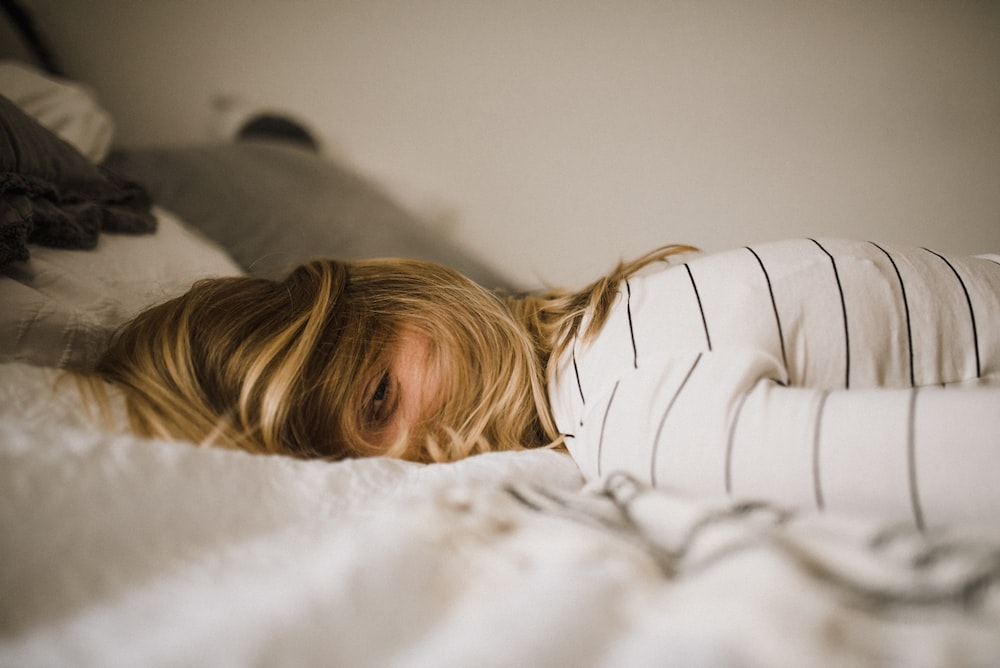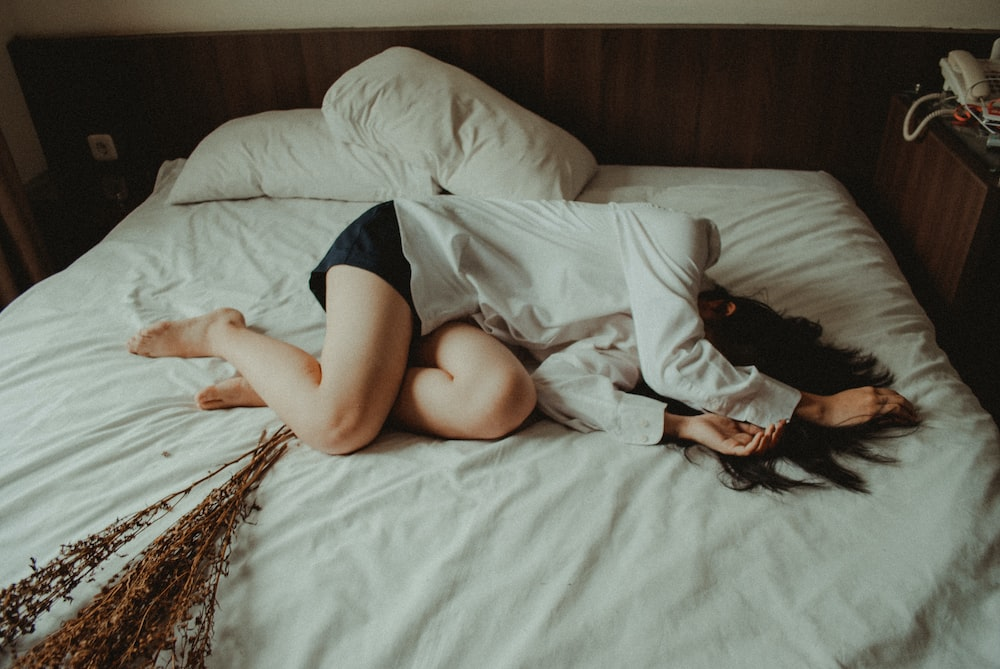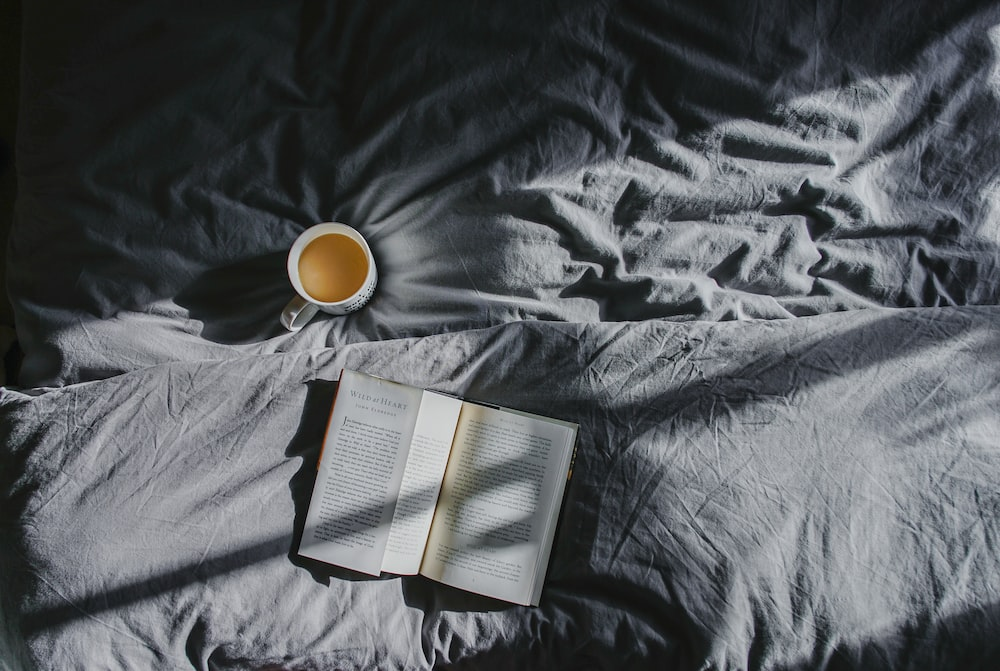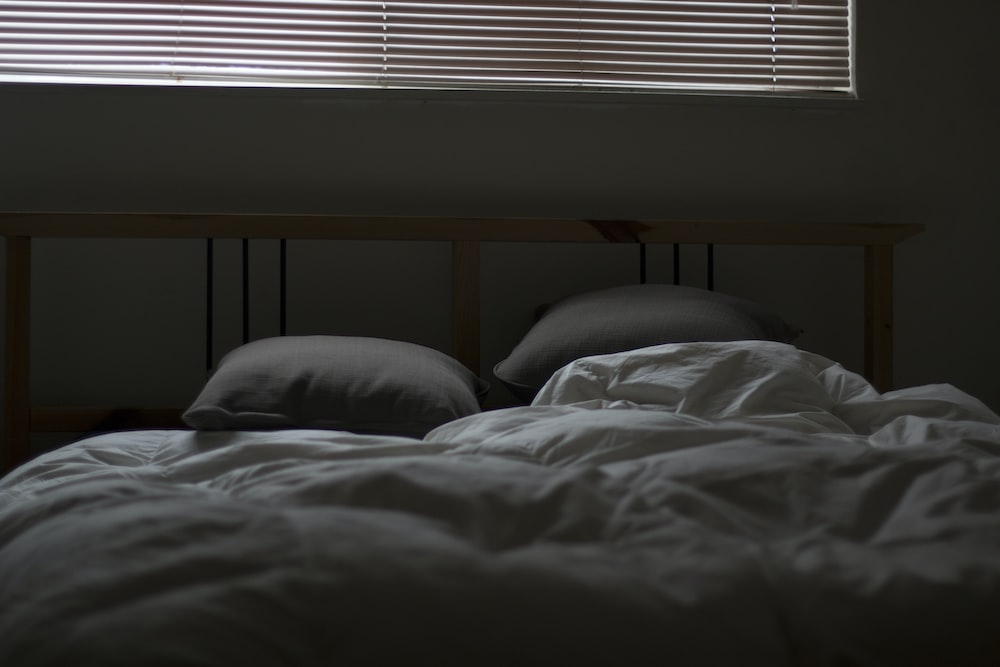Anxiety is often connected to sleeping disorders. Excess fear and worry can lead to intrusive thoughts and causes problems with falling or staying asleep. A lack of sleep can worsen your anxiety and spur a negative cycle that involves anxiety disorders and insomnia.
Anxiety disorders are an extremely common issue in the U.S., with over 40 million adults diagnosed with anxiety. Understanding the link between sleep efficiency and anxiety is important to improve your overall emotional and physical wellness.
Here’s all you need to know:
What is an anxiety disorder?
Anxiety refers to a general feeling of unease and worry. Everyone experiences some level of anxiety when confronted with stressful or fearful situations. In an anxiety disorder, the level of distress gets excessive. Your fears might be disproportional to the situation, and your worrying can interfere with your daily life. If the feelings are persistent and occur on most days for more than six months, you need to talk to a mental health professional.

What is insomnia?
Insomnia is the medical term for having difficulties with sleep, which can include:
- Waking up tired
- Waking up too early
- Trouble staying asleep
- Difficulties falling asleep
Sleep disorders and anxiety disorders: What comes first?
Either anxiety or sleep disorders can cause the other. Anxiety causes sleeping problems, and sleep deprivation can cause anxiety.
People who have chronic insomnia are at a much higher risk of developing anxiety disorders. Anxiety can also cause nightmares, which further worsens the symptoms of insomnia.
Almost all psychiatric disorders have symptoms of some type of sleep disruption. More than 50% of adults with anxiety disorders are affected by sleep problems.
Sleep and mental health
According to neuroimaging and neurochemistry, there is a relationship between sleep and mental health. A proper night’s sleep can nurture your emotional and mental resilience, while chronic sleep disruptions can generate negative emotional sensibility and thinking patterns.
Treating insomnia can alleviate some of the symptoms of anxiety disorder, and the same goes the other way around.

How do you know if you have insomnia?
If you believe you might have insomnia, it’s important to talk to a doctor. They’ll conduct a physical exam and might recommend maintaining a sleep diary to log your sleep schedule.
Some treatment options include cognitive behavioral therapy, which can help you identify and tackle behaviors that perpetuate your sleeping problems, and sleeping pills to help you fall asleep.
If you want to reduce your stress and anxiety, try the following:
- Meditating: Take deep breaths and focus on the air entering and leaving your lungs. Visualize a scenic environment, such as a grassy hill or a field of flowers.
- Exercising: Working up a sweat every couple of days can drastically improve your mental and physical health. It’s also a great outlet for releasing your frustrations and producing mood-enhancing endorphins. Yoga is great for reducing stress and anxiety.
- Playing music: Calming and soft music can decrease your blood pressure while encouraging your mind and body to relax.
- Talking to someone: Don’t be afraid of reaching out for help. Your friends and family will be willing to help you in whatever way they can. Consider talking to a therapist or doctor for further help.
Sleep better
In order to get proper rest, make sure that you:
- Prioritize getting enough sleep. Keep 7-9 hours a day to get your nightly rest. Try to maintain your sleep schedule by going to bed and waking up around the same time every day, even on the weekends.
- Create a relaxing bedtime routine: Stay away from caffeinated foods and beverages, and make sure that you don’t watch TV or use other electronics before bed. Try listening to music, reading a book, or meditating.
- Get a fan or white noise machine to drown out any excess noise, and make sure that your bedroom is dark, cool, and quiet. Invest in high-quality pillows to ensure you’re comfortable throughout the night.
- Avoid taking naps in the middle of the day, so you’re more tired at bedtime.

Talk to an experienced sleep consultant
Don’t let your insomnia get the best of you—you deserve to get a good night’s worth of rest. Letting your anxiety fester for too long without getting proper help can make it more difficult to overcome. Talk to a sleep coach from A Better Snooze to get top-notch sleep help services, such as help with night terrors, teenage sleep problems, and sleep problems during pregnancy.
Drop a message today to get started.
About the author
Michaela K. is a professional psychotherapist who works with people with generalized anxiety disorders and depression. She often finds a link between a lack of sleep and anxiety and aims to help people improve their sleep routines and mental help by providing in-depth information.


